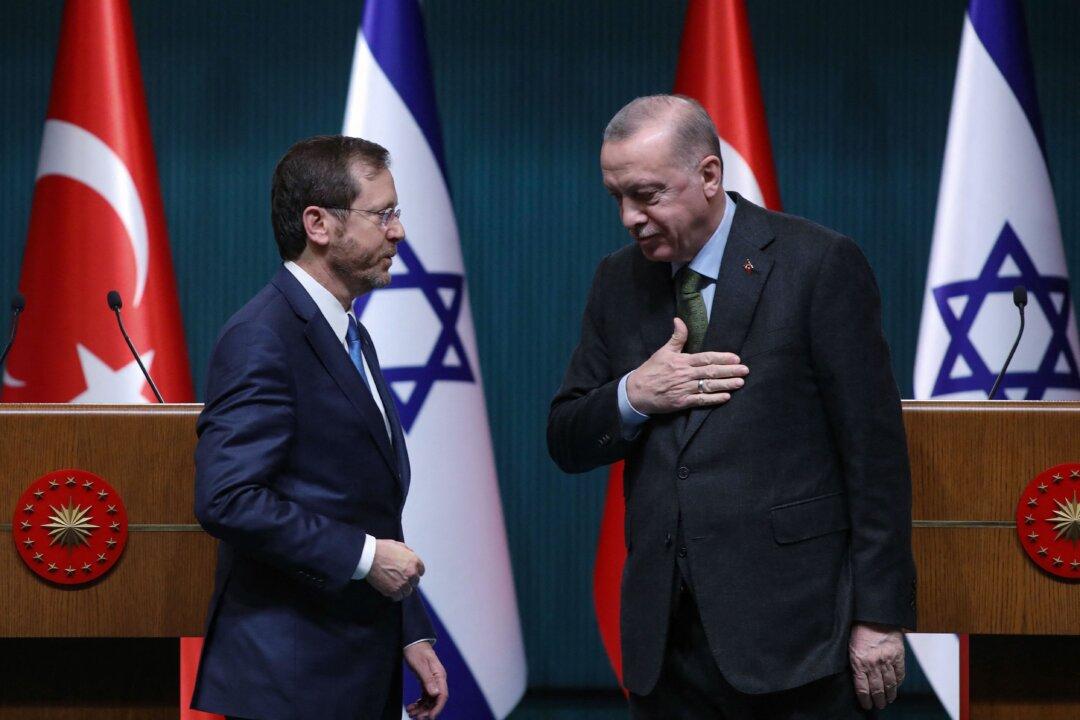ANKARA – Turkey and Israel this week announced plans to exchange ambassadors after four years of downgraded diplomatic relations. The move will effectively normalize ties, despite ongoing differences between the two countries over the issue of Palestine and the blockaded Gaza Strip. According to Turkish political analyst Oytun Orhan, the move is part of a wider trend towards diplomatic normalization involving several states of the region.
“Regional actors are tired of conflict,” Orhan, a Levant expert at Ankara’s Center for Middle Eastern Studies, told The Epoch Times. “They’re keen to resolve their longstanding differences and enjoy the fruits of economic cooperation and trade.”





